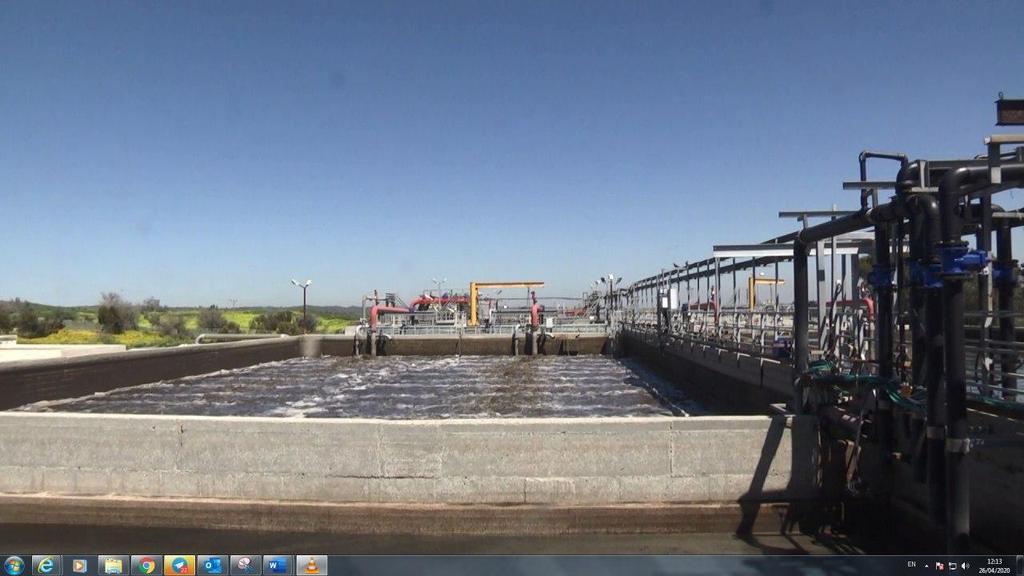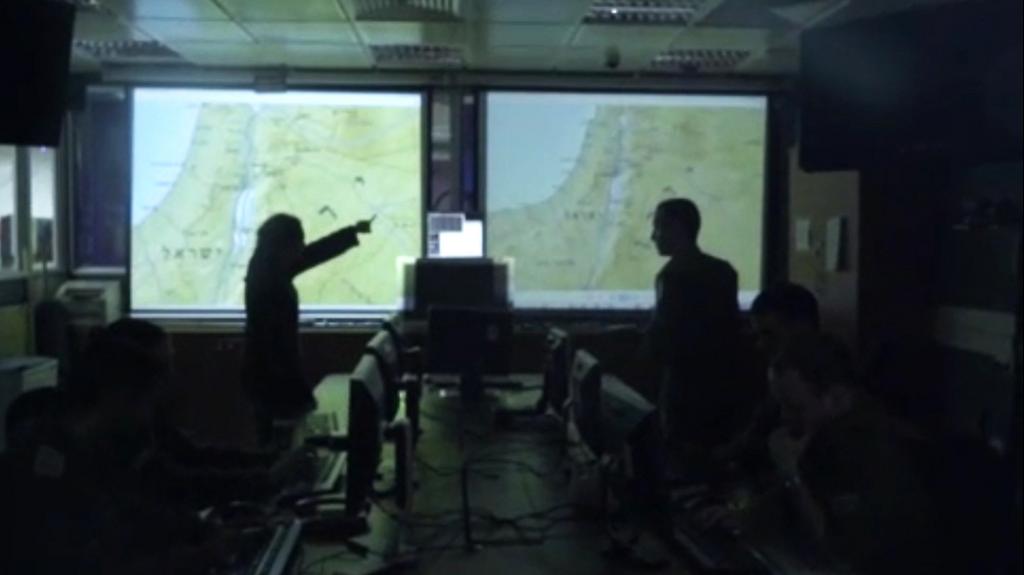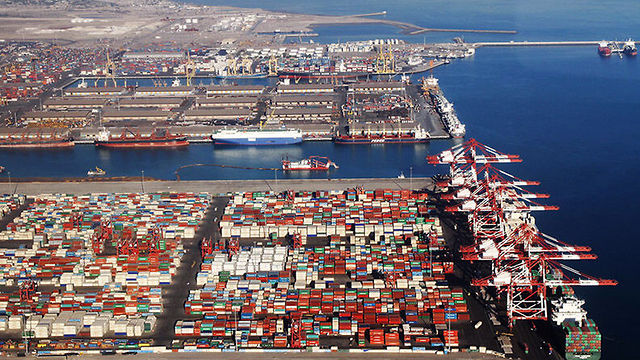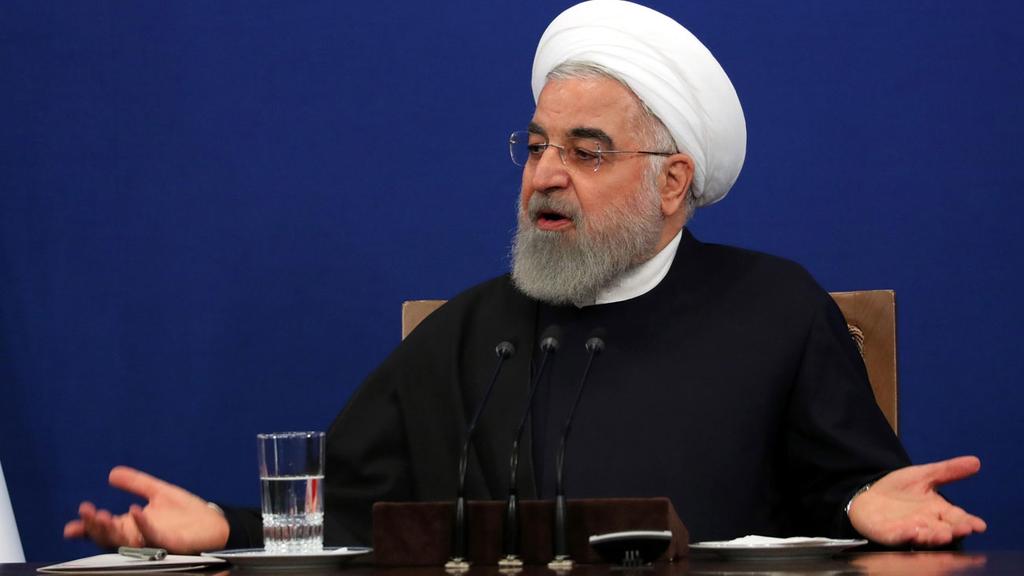Getting your Trinity Audio player ready...
The Washington Post report of an Israeli and American cyber attack against Iran seems reliable and accurate. The U.S. sources who anonymously provided the newspaper with information about the attack attributed to Israel and the United States in Iran 10 days ago did not even ask journalists to hide potentially identifying information.
The officials also backed up the information with satellite photos they showed to reporters (some of the most experienced at the Washington Post), including a line of cargo trucks stretching for miles on roads leading to the stricken Shahid Rajaee Port in Bandar Abbas.
The same footage also showed numerous ships docked in the waters of the Strait of Hormuz, waiting to enter Iran's most state-of-the-art port, which is considered to be of strategic importance.
According to the Washington Post, Israel and the U.S. were prompted to carry out the attack following an Iranian cyber attack on Israeli water and sewage facilities at the height the coronavirus crisis, as revealed by Ynet.
It was a targeted attack on vital civilian infrastructure in Israel carried out by professional means that was professionally concealed.
Cyber warfare is waged on three levels: intelligence gathering, defense and attack. And one facet of this war is considered to be the most dangerous - an attack on vital civilian and military infrastructure.
Through computers, it is possible to attack electricity grids, water facilities, hospitals, chemical plants, transportation hubs and pipelines that transport gas and other fuels, thereby inflicting thousands more casualties and material damage than kinetic bomb damage, in other words "regular" strikes using precise and sophisticated weaponry, intense artillery shelling or a massive bomb attack.
5 View gallery


A water treatment plant in Sderot, one of the sites targeted by Iranian hackers
(Photo: Roee Idan)
As such, according to reports, Israel shows restraint when Iranian hackers try (by pretty amateurish means) to steal information from banks in the country, and the U.S. doesn't attack Russia when the Kremlin hackers try to sway American voters with so-called fake news on social media.
But the Iranian attack could have paralyzed Israel's sewage systems, disrupting the water supply for farming and aggravating sanitation problems in some areas of the country at the height of the pandemic.
The potential damage to Israel by this attack could have been greater than the damage that some Iranian missiles have caused from Lebanon and Syria.
Therefore, according to the Post, Israel decided to respond in line with the strategic policy adopted by Jerusalem since the Second Lebanon War in 2006.
It responds severely and disproportionately to attacks by a group or sovereign state but stays below the threshold of a declaration of war. This is what happens in Gaza, this is what happens in Syria, and now this is also what happens with long-range or cyber attacks.
Essentially, there is no difference in Israel's strategy of response, whatever the shape of the attack. This is the message that Israel and the U.S. sought to convey to Iran by partially paralyzing the strategic port.
5 View gallery


Inside the IDF cyber warfare department in Tel Aviv
(Photo: IDF Spokesperson's Unit )
Israel has learned the hard way that steady deterrence is the best defense, as it prevents attacks before they occur, causing casualties or material damage.
American assistance
If Israel did indeed carry out the attack on Iran, it is fair to ask why, with its own impressive civilian and military cyber capabilities (namely, Unit 8200), it needed to cooperate with the Americans to do.
One reason is that those behind the attack on Israel's water facilities hid their virtual fingerprints by using servers located in the U.S.
Once the attack was halted and neutralized, Israel needed the U.S. government to help quickly and accurately identify those responsible, for this is a difficult challenge and more so in a short space of time.
5 View gallery


U.S. Secretary of State Mike Pompeo and Prime Minister Benjamin Netanyahu meeting in Jerusalem last week
(Photo: GPO)
Furthermore, the use of U.S. servers is a blatant violation of American sovereignty, and Washington should also respond and set its own red line in the virtual sands of the Middle East. And perhaps should already have done so.
The Americans have a vast global cyber database as well as details of non-military assets, such as sea ports.
If Israeli cyber officials who actually carried out the attack were given access to this database, one could hypothesize that this would accelerate and even fine-tune the retaliatory attack, ensuring that the damage was severe but not too severe - and could serve as show of power to the world in general and the Iranian leadership in Tehran in particular.
The Israeli-U.S. cyber war against Iran has been going on for almost 20 years but has gained momentum in the last 15 years.
And by apparently leaking the event to one of the world's most highly regarded newspapers, the two countries have conveyed a clear message to the ayatollahs, marking a red line in the virtual sand.
Israel and the U.S. will respond virtually and disproportionately to any cyber attack in which Iran or anyone acting on its behalf attempts to damage essential infrastructure.



